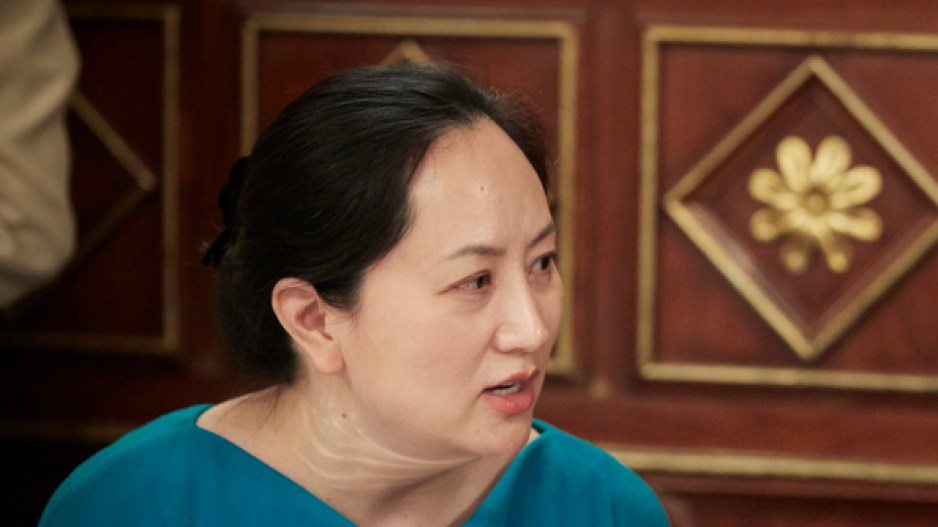The final portion of the Meng Wanzhou extradition proceedings got underway Wednesday, with Crown attorney Robert Frater making the Attorney General’s office’s final committal arguments on the landmark case.
Frater, in summing up the U.S.’s case against Meng, focused on the Huawei Technologies CFO’s alleged crime of fraud – of misrepresenting the company’s relationship with a subsidiary (Skycom) selling embargoed telecom products in Iran – as the core of the Crown’s argument for extradition.
The Crown said Canadian case law makes it clear and simple that the intention of creating the offence of fraud was to discourage dishonest behaviour in business dealings, adding that the core aspects of what constitutes a fraud come down to two factors: Dishonesty and the risk of deprivation to a victim.
Frater said Meng’s presentation to HSBC in 2013 – after a pair of Reuters reports that revealed Skycom was selling U.S.-sanctioned telecom devices in Iran – was the essence of the definition of fraud as defined by both Canada and the United States.
“It was both what she said and what she did not say [in 2013],” Frater said. “It was motivated by the desire to reassure HSBC in light of two Reuters articles that Huawei is not involved in any activity that would lead to HSBC running afoul of US sanctions law.”
The purpose, Frater said, was to convey the message that HSBC has no risk stemming from continuing its banking relationship with Huawei.
“She falsely tried to distance Huawei from Skycom, who - according to the Reuters reports - was engaged in activity in Iran. In reality, Huawei was in full control of Skycom. It was a material non-disclosure...The evidence of the dishonesty is abundantly clear.”
Frater also noted that Meng’s assertion that HSBC suffered no financial loss from the decision to continue to provide banking services to Huawei does not mean much in the definition of fraud, since the bank was put at risk of loss for violating U.S. sanctions.
That risk, Frater noted, stemming directly from Meng’s alleged misrepresentations is enough to show fraud had occurred.
“When you send the CFO of your company to the bank to tell them there is no risk, you are sending the message that this is important,” Frater said. “It certainly was the case that HSBC did rely on that information to make its decision. Should the bank have been more vigilant? Perhaps, but clearly the bank was misled.
“The issue will be was HSBC deceived, not whether HSBC could have avoided being deceived.... Even with no actual loss, the risk of loss stands.”
Frater also brought up presiding judge Heather Holmes own previous decisions in this case, noting that an extradition judge’s purview is similarly limited as a judge at a preliminary hearing.
That means a stay of proceedings is only possible if the U.S. Record of the Case and other facts provided by the United States are so obviously false and detrimental to the extradition process, and the judge should not judge the strength of the defence’s case when evidence only shows an alternate narrative of what happened.
That responsibility, Frater said, rests with the trial judge.
“There continues to be a high threshold for evidence [presented in at extradition hearings] to lead to stay,” he said. “The facts of the case [presented by U.S. officials] have to be so unreliable that the court must stay proceedings... None of the challenges [made by Meng] has risen to that point.”
The day also saw presiding judge (and B.C. Supreme Court associate chief justice) Heather Holmes challenge Frater and the Crown's position on several points. One key point Holmes requested clarification upon was whether the U.S. Record of the Case (ROC)made clear that only some business transactions - the ones that Skycom was allegedly involved in - were to incur penalties for violating U.S. sanctions.
Holmes noted the Crown has presented the position so far that - since not all business activities with Iran violated U.S. sanctions and the U.S. jurisdiction came into play when proceeds of the illegal transactions were cleared through American financial systems - would it be Meng's responsibility to tell HSBC what risk there may be if the HSBC-Huawei banking relationship continued.
"It's clear Ms. Meng said, 'we, Huawei, do business in Iran,'" Holmes asked Frater. "And it's clear that HSBC continues to do business with Huawei. That's fundamental to the theory in the ROC [of Meng's alleged fraud]. Is Ms. Meng reasonably the one to advise HSBC on risks arising from dollar clearing?"
Frater - while acknowledging the ROC did not clearly outline the parameters of U.S. sanctions against Iran - contended that the key is Meng gave HSBC during the 2013 meeting reassurance to continue the bank-client relationship.
"The message that was conveyed to HSBC was that, 'You were at no risk at all because we are fine with all sanctions,'" Frater said.
Holmes also requested clarification on the point that HSBC's banking relationship with Huawei continues to this day, and that Huawei continues its operations in Iran. With those points, Holmes asked Frater how it was possible for Meng to misrepresent HSBC's risk of loss by continuing to do business with Huawei.
Frater noted that - while Huawei's own activities in Iran at the time did not violate sanctions - the key remains its relationship with Skycom. It was Skycom that the Reuters report described as having conducted business in violation of U.S. sanctions, Frater said, adding that the misrepresentation is Huawei's link to Skycom - with was described as a partnership.
"There's no disclosure of the relationship with Skycom," Frater said of Meng's 2013 meeting with HSBC. "Huawei is Skycom."
The hearings are scheduled to continue until Aug. 20.




